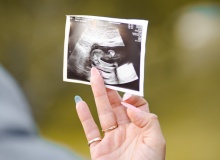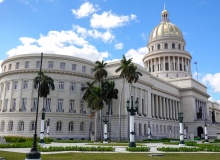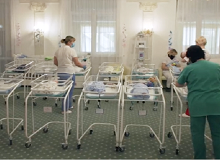

.jpg)
In Norway, the “divide among Christian churches follows a new line”, notes journalist Tore Hjalmar Sævik.
.jpg)
A concise joint Christian statement signed by Pentecostals, Baptists, evangelical Lutherans, as well as the Roman Catholic bishops, denounces the “activism” and “pressures” of the government.

MEPs define forced marriage, illegal adoption and surrogacy as forms of exploitation.

The directive “adds new crimes”, which include surrogacy for the purposes of reproductive exploitation. It will now be negotiated with the European Council.

In neither country is surrogacy regulated by law, but the Dutch and Swedish governments support “altruistic surrogacy”.
.jpg)
Speakers agreed that instead of regulating the practice of surrogacy in the European Union, efforts should be made to highlight that surrogacy means, in essence, the commodification of children.

Well-known actress Ana Obregón resorts to surrogacy at 68 and sparks an intense political and media debate.

In 2 reports submitted to the Committee on the Rights of the Child, the Protestant Evangelical Committee for Human Dignity asks to abolish surrogacy and ban minors’ access to pornography.
.jpg)
Conscientious objectors will not be excluded from decisions on whether an abortion can be performed on the grounds of illlness. Surrogacy is defined as “reproductive violence against women”.

Eleven years later, Spanish evangelicals will gather for a new Bioethics congress. Non-Christians are welcome in a programme that will address issues such as euthanasia, artificial intelligence, and creation care.

Among the changes, which will cost the state 104 million euros, it will allow minors aged 16 and 17 to carry out abortions without authorisation.

After a popular consultation on the new ‘Code of Families’, Cubans will vote the final text in a referendum in July. Evangelicals have criticised several parts of the draft law.

In a sentence, the highest court in Spain clearly opposes surrogacy because “it violates fundamental rights recognised in the Constitution and international agreements on human rights”.

A survey concludes that 9 in 10 attend their church’s worship service every week. 63% of respondents do volunteer work and 40% identify with right-wing parties.

“Surrogacy should not be authorised or legalised”, says the evangelical entity, which denounces that “it attacks women and children human rights”.

The final text is passed after two years of debates. French evangelical bioethics experts warned against the “consumerist and individualist drift” of the law and the disregard for children.

The Swiss parliament approved the “marriage for all” law in December, allowing LGBT people to adopt and use reproductive technology. Now two initiatives seek to collect 50’000 signatures to ask the population in a referendum.

“Marchons Enfants!” called to stop a law that, they believe, threatens the dignity and rights of children.

Demonstrators called for “the protection of the right to life from conception”, and “an end to euthanasia and surrogacy, because children are not goods”.

French evangelical experts underline that the controversial Bioethics law that will regulate genetic manipulation, abortion and oocytes preservation, has not yet been approved.

“Surrogacy is a serious violation of the rights of the child”, the French Evangelical Committee for Human Dignity says to UN Committee on the Rights of the Child.

A union of Pentecostal churches denounces the “profitable business that turns a mother into an exploited object and her child into a living commodity”.

Norwegian politicians took one more step in the direction of a society where babies are regarded a commodity to be ordered and traded, not as a child created in the image of God.

The Swiss Parliament could soon redefine marriage. Homosexuals would be given the right to adoption and surrogate pregnancy would be discussed.

The CNEF presented its positions on the Estates General of Bioethics in a public event. “The value and dignity that the Bible recognises for every human being invites respect for all”, they said in a statement.

Las opiniones vertidas por nuestros colaboradores se realizan a nivel personal, pudiendo coincidir o no con la postura de la dirección de Protestante Digital.